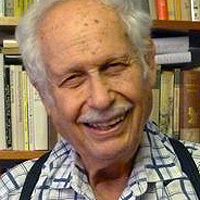
BERLIN – On Dec. 22, 2014, the Dresden opera house turned off its outdoor lighting in disapproval and the square around the golden equestrian statue of August the Strong was largely in darkness when an estimated 17,500 people demonstrated their views by singing – no arias or operatic choruses but rather – Christmas carols! At least one of them, “Silent Night”, was most especially inappropriate!
The big crowd was the tenth gathering of a movement called PEGIDA, short for “Patriotic Europeans Against the Islamization of the Occident”. They had been gathering every Monday evening since October, first with 350 marchers, soon 5000, by December 7th 10,000, then 15,000 on December 15th – and now 17,500, with lesser offshoots in other cities, east and west.
Its twelve leaders hoped to repeat the rapid growth of Monday protest meetings in Leipzig in 1989, a key factor in bringing down the GDR. They took up the same chant: “We are the people”. But the main thrust of PEGIDA, as its name indicates, was now against refugees, immigrants and foreigners. Its banners call self-righteously “For the Preservation of Our Culture” and “Against Religious Fanaticism” or “Against Religious Wars on German Soil”. It is aimed primarily against Muslims; many German flags and crosses make clear who is meant by “the people”! In rare statements it tries to sound a little less chauvinist, averring that it not against “refugees from military conflicts”, not against Islam or foreigners but only against “criminal asylum seekers” or “economic refugees who misuse Germany’s welfare system” and who, they insist, “live in luxurious housing while poor old-age pensioners freeze in unheated homes and can’t even afford a piece of Christmas cake”.
Why PEGIDA’s quick growth?
PEGIDA’s quick growth derives largely from the many fears, especially in eastern Germany, about the scarcity of decent, steady jobs, about constant rent hikes and dwindling hopes about having enough to live on when they retire. Echoing past fascists, today’s “pied pipers” try to deflect such fears and resentment against refugees from wars in Iraq, Afghanistan and Syria, destitute Africans who survived stormy Mediterranean crossings, or mostly legal immigrants from the Balkans, often Roma and Sinti (“Gypsies”) escaping discrimination and misery. And this has worked all too well, even though Saxony has one of the smallest immigrant counts in all Germany, less than 2 percent of the population, who have taken no one’s jobs or benefits. Many, highly-skilled, face the same tax burdens as most Germans (except the very wealthy, who somehow dodge such burdens). As for the disdained Rumanians and Bulgarians, it was found that 25 percent of these immigrants have college degrees, as against 19 percent of Germans. Eighty-five years ago economic fears and worries were misused to impel hatred of the Jews; today’s targets, for the same purpose, are the Rumanians and Bulgarians, Roma people and always the Turks, Kurds, Arabs and other Muslims.
Who is Lutz Bachmann?
PEGIDA’S leaders like to denounce “the German press – always full of lies”. It’s hard to deny this description, but the lies are hardly the kind PEGIDA complains about; unfair treatment of itself and imagined over-indulgency towards “foreigners”. But while PEGIDA toughies physically attack journalists (including my granddaughter, a photojournalist), an ironic angle has turned up involving their top rabble-rouser, Lutz Bachmann. A mysterious figure, he has been variously arrested for cocaine possession, drunken driving, assault, burglary and incitement to perjury; he fled to South Africa but was extradited, locked up for two years, then paroled, after which he started a photo and PR agency suggestively named “Hot Pepper Pix”. A Bundestag deputy from the LINKE (Left) party has now discovered that his website boasts of close ties with the press, especially the powerful Axel Springer empire, whose illustrated daily “BILD” is less known for fair reporting about “those foreigners” than for subtle or less subtle attempts to set working people against one another.
Who counters PEGIDA?
Happily, there has been an active rejection of the marches, not only the opera house blackout. Thousands have taken part in counter-demonstrations from the start. In fact, in most cities they out-numbered the racists, as in Munich one Monday with 15,000 counter-demonstrators. But in Dresden PEGIDA remains stronger, perhaps because of continued worse conditions in eastern Germany, even in major centers like Dresden, or in part, some maintain, due to a relative lack of closer contact with other nationalities, now and in GDR days.
Basic to the PEGIDA marches are growing convictions that no mainline political parties represent the people’s interests. While the neo-Nazi National Democratic Party (NPD) sends its thuggish vultures circling in on the marches to look for prey, the young Alternative for Germany (AfD), leaning in the same direction but preferring a respectable “suit and tie” image, “considers most positions of PEGIDA to be legitimate… because people taking part in these demonstrations do not feel their worries are being understood by politicians.”
What about those politicians? None dare to approve of a movement which is fascist-tainted, if not worse, and currently by no means chic. Chancellor Merkel said that while everyone had the right to voice their opinion freely, there was no place in Germany for agitation against immigrants. All major churches have spoken sharply against it – and some take part in counter-demonstrations. The new chairman of the Central Council of Jews in Germany, Josef Schuster, called the possibility of an Islamic conquest of Germany “absurd”. And even President Gauck tried to soften his recent calls for German military expansion with mellow tones about welcoming asylum-seekers. While both Greens and Social Democrats sharply reject this new movement, some critics recalled that Thilo Sarrazin, once Finance Minister in Berlin, never lost his Social Democratic Party membership despite viciously racist views on immigrants and minorities, expressed in a top best-seller and endless talk shows.
Few dare to support PEGIDA but few want to alienate the many voters who think along similar lines. The Christian Social Union, Bavarian sister party of Merkel’s CDU, attacked PEGIDA’s critics, including a Social Democratic cabinet minister: his “outrageous vilification of people peacefully expressing their worries was ‘shameful for Germany'”. It was his party which recently demanded that immigrant families speak only German, even in their homes. This made it a national laughing stock, not only because of the obvious impossibility of enforcing such a rule but because a genuine Bavarian dialect is considered to be almost incomprehensible for many Germans.
As for the LINKE (Left) party, its members were often active in the counter-demonstrations, carrying signs saying things like “We Welcome Immigrants” (or Refugees). In an interview, the new LINKE minister-president in Thuringia, Bodo Ramelow, said: “We want just the opposite of PEGIDA. We need more cultural knowledge, cultural familiarity. That is why we should not talk with PEGIDA organizers. But we should talk with those joining them largely to articulate their worries, and we must tell them clearly that their worries are important to us. We should also tell them to think about the doctor from Syria who wishes to work here. And we should see to it that he is able to work here.”
Then he added: “In 2010 thousands of Dresdeners showed with their solidarity that they would not let Nazis take over Dresden. But the city’s thanks were to indict many of those opposing the Nazis. I am not too surprised therefore at Dresden’s strange habit of saying: Those taking to the streets to oppose Nazis will get into more trouble with the law than those shouting cheap, stupid slogans…That does not mean that everyone marching with PEGIDA is a Nazi. Definitely not. But I think its organizers are stirring up that same old fascist pot. The citizens must be given a signal that we take their worries seriously but will not bow to those trying to shift the blame onto our minorities.”
If it continues its rapid growth, PEGIDA could become extremely dangerous. I do not wish to minimize this danger when I mention a new ally of the anti-fascists: a heavy snowfall suddenly covering most of Germany including Dresden. This not only stopped plans for the next Monday march but led to a remarkably broad wave of tweet and Facebook comments, mocking and parodying PEGIDA. Americans (and others) will hardly fail to recognize behind this witty yet bitter, hard-hitting sarcasm more than a few of the familiar racist slogans which are ridiculed here.
“Yesterday it was just a few flakes. Today the whole town is full of them!”
“How much snow will be coming before we begin to get rid of it?”
“This snow is taking jobs away from German drizzle!”
“In some places old age pensioners don’t even dare to leave their homes!”
“All this lazy snow does is lie around all day doing nothing!”
“I have nothing against snow. Some snowmen are my good friends. But must they be in my neighborhood?”
“They’re filling up our whole cities by the billions. But at least they’re white!”
Racism and fascism are real dangers here and elsewhere. One can hope that this weapon of biting sarcasm, also a petition which already has 500,000 signatures, plus thousands of courageous counter-demonstrators, will at least rein in the PEGIDA danger.
Dresden history
Dresden, Saxony’s beautiful capital, has a distinguished history. One ruler, August the Strong, could bend horseshoes with his bare hands and, so legend has it, sired 354 children. In 1697 he pushed and bribed his way onto the royal throne of neighboring Poland, made possible by his quick conversion to Catholicism. (His wife, refusing the switch, broke ranks, which is why only one of his children was with her). His expansion brought no good to Poland but did attract top baroque or rococo architects and artists to Dresden from very Catholic Italy. This, plus rich silver mines and the first fine chinaware not from China (Meissen porcelain) gave the city its proud nickname, “Florence on the Elbe”. Great composers increased its fame: Heinrich Schütz, Johann Sebastian Bach, Carl Maria von Weber, the early Richard Wagner (in 1848, a young revolutionary, he had to flee the city). Also Richard Strauss and artists like Otto Dix and Oskar Kokoschka. Most of the beauty and grandeur was lost in the devastating UK-USA bombing and resulting fire storm on Feb. 13th 1945, but in the years since 1945 the city has been able to recreate many of its most beautiful structures.
Among them was the magnificent Semper Opera House, the site of world premieres like Wagner’s “Tannhäuser” and “Flying Dutchman” (based on a text by Heinrich Heine, Wagner’s friend before he gave up revolution and became an anti-Semite). Or, much later, “Salome” and “Rosenkavalier” by Richard Strauss. The demolished building was beautifully reconstructed in GDR days as one of the most modern opera houses in all Europe.
Photo: Members of Die LINKE at NO PEGIDA counter demonstration, Facebook.












Comments